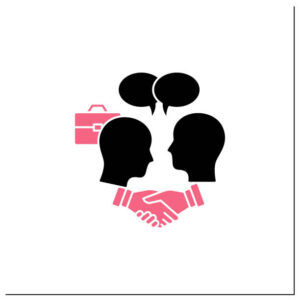Disagreements are an inevitable part of any relationship. Whether you’re in a romantic partnership, a friendship, or a familial bond, conflicts are bound to arise. What truly matters is not the absence of disagreements but the way you handle them. In this article, we will explore effective strategies for navigating the storm of disagreements and fostering a healthier, more resilient relationship.
Cultivate Open Communication
 (Photo from iStock)
(Photo from iStock)
Communication is the cornerstone of any successful relationship. When disagreements arise, it’s crucial to establish an environment where both parties feel comfortable expressing their thoughts and feelings. Cultivate open communication by actively listening to your partner and ensuring they feel heard and understood. Avoid interrupting or dismissing their perspective, as this can lead to further frustration.
Practice using “I” statements instead of “you” statements. For example, say “I feel upset when…” instead of “You always do this.” This approach helps to express your feelings without placing blame, fostering a more constructive dialogue.
Choose the Right Time and Place
Timing is key when addressing disagreements. Avoid discussing sensitive issues when either party is tired, stressed, or preoccupied with other matters. Choose a calm and neutral setting where both individuals can focus on the conversation without distractions.
Additionally, be mindful of the tone you use. A harsh tone can escalate tensions, making resolution more challenging. Approach the conversation with a calm and respectful demeanour, even if emotions are running high.
Focus on the Issue, Not the Person
 (Photo from iStock)
(Photo from iStock)
During disagreements, it’s easy to let frustration escalate into personal attacks. Instead of criticizing your partner, focus on the specific issue at hand. Discuss the behavior or action that caused the disagreement rather than making sweeping statements about their character.
Remember, you’re on the same team. Avoid using words like “always” or “never,” as they can be perceived as accusatory and hinder constructive communication. By addressing the problem rather than attacking the person, you create a more conducive environment for finding solutions together.
Seek Understanding
Empathy is a powerful tool in resolving disagreements. This not only demonstrates your commitment to understanding but also fosters a sense of validation for your partner.
Take a Timeout if Necessary
 (Photo from iStock)
(Photo from iStock)
In the heat of an argument, emotions can run high, making rational discussion challenging. If you feel the tension escalating, it’s okay to call a timeout. Agree on a set time to revisit the conversation once both parties have had a chance to cool off and collect their thoughts.
Whether it’s taking a walk, practicing deep breathing, or engaging in a hobby, giving yourself the space to decompress can make a significant difference in the resolution of the disagreement.
Collaborate on Solutions
Once both parties have expressed their perspectives, shift the focus toward finding common ground. Collaborate on potential solutions that address the concerns of both individuals. This may involve compromise, finding middle ground, or brainstorming creative alternatives that satisfy both parties.
Be open to trying new approaches and be willing to make concessions. A successful resolution often requires both parties to actively contribute to finding a solution that benefits the relationship as a whole.
Establish Boundaries and Agreements
 (Photo from iStock)
(Photo from iStock)
To prevent recurring disagreements on the same issues, establish clear boundaries and agreements. Communicate openly about your expectations and needs, and encourage your partner to do the same. This proactive approach can help prevent misunderstandings and create a foundation for a healthier relationship.
Ensure that both parties are on the same page regarding important aspects of the relationship, such as communication preferences, personal space, and shared responsibilities. Having a mutual understanding of each other’s boundaries can minimize future conflicts.
Practice Forgiveness
Forgiveness is a fundamental aspect of moving forward after a disagreement. Holding onto resentment or grudges can erode the trust and connection in a relationship. Once a resolution is reached, practice forgiveness and let go of the negative emotions associated with the disagreement.
Forgiving doesn’t mean forgetting, but it does mean releasing the emotional burden and choosing to focus on the positive aspects of the relationship. Remember that everyone makes mistakes, and a healthy relationship requires the ability to forgive and grow together.
Seek Professional Help if Needed
 (Photo from iStock)
(Photo from iStock)
If disagreements in your relationship become chronic or escalate to a level where resolution seems impossible, seeking professional help can be a valuable option. Relationship counseling or therapy provides a neutral space for both individuals to express their concerns and work with a trained professional to navigate challenges.
A therapist can offer guidance, facilitate communication, and provide tools to strengthen the relationship. Don’t hesitate to seek help when needed; it’s a proactive step toward building a stronger, more resilient connection.
Celebrate Successes and Learn from Challenges
Acknowledging and celebrating successful resolutions to disagreements is essential for reinforcing positive communication patterns. When you and your partner effectively navigate a disagreement, take a moment to recognize the accomplishment. This not only fosters a sense of unity but also encourages the continuation of healthy communication.
Similarly, view challenges and disagreements as opportunities for growth. Reflect on what you’ve learned from each disagreement and use that knowledge to strengthen your relationship. Continuous improvement is a natural part of any dynamic, evolving connection.
Conclusion
Handling disagreements in a relationship requires commitment, effective communication, and a willingness to work together toward resolution. By cultivating open communication, choosing the right time and place for discussions, focusing on the issue, seeking understanding, taking timeouts when necessary, collaborating on solutions, establishing boundaries, practicing forgiveness, seeking professional help when needed, and celebrating successes, you can navigate disagreements in a way that strengthens your connection.
Remember, disagreements are a normal part of any relationship, and how you handle them can determine the overall health and longevity of your connection. With patience, empathy, and a commitment to growth, you can turn disagreements into opportunities for building a stronger, more resilient relationship.
Reference:
One Love Foundation
Want to know some tips about love that introverts have, click on the link below:
Tips on Love for Introverts




